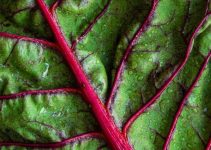Food addiction is a disorder that is characterized by an uncontrollable urge to eat certain foods. It is often associated with a lack of self-control and the inability to control one’s impulses.
It has been found that addiction can be caused by many factors, like stress, genetics, and brain chemistry.
Food Addiction?
While there is no consensus in the scientific community on whether some foods can be addictive, the definition of food addiction does not exist.
The truth is that, although the definition does not exist, food has become something more than energy for our body: it lifts us when we are down, we use it when we are bored, we eat when we are sad, or to celebrate something happy.
sugar has been included in the list of dependency items because the brain relates its consumption to a “reward.” The same is true of addictive drugs.
According to research, food that tastes good causes dopamine release, the chemical that makes you feel good.
In this way, some foods make you feel healthier than others simply because they taste good.
Thus, it is pretty evident that we constantly seek the experience of foods that make us feel good.
So foods are probably not addictive, but it is also true that if you have been eating food for years to relieve sadness and stress, it can be a tough habit to break.
Food as Reward
An essential point in breaking dependency on certain foods involves understanding why it is a reward.
There are three different aspects of a reward: liking, pleasant experience, and wanting.
Wanting is the motivation to seek the reward to experience it again. According to science, dopamine is released in this regard. Furthermore, it is released to experience the rush in anticipation of receiving the reward.
Thus, in general, it happens with these foods that we want them, but once the moment passes, we no longer feel the need to consume them.
But other things can activate your brain’s rewards pathways: music, winning, humor, smiling faces, among others.
How to Beat it
There is no magic formula to stop wanting the foods you crave.
So, the only way to reduce cravings is to take a break.
If you always have something sweet to eat after dinner, you will likely eat it.
But don’t worry because fasting particular foods doesn’t increase cravings as a real drug addiction does. In fact, it reduces them.
Changing your habits and your behavior is challenging. Here are some tips to help you control what you eat.
1. Decide That You Want to Change
Real change involves abandoning one aspect of your behavior to achieve something better.
Thus, it would help if you decided that losing weight or changing your eating habits is more important than the meals you eat as a reward.
2. Precisely Articulate What Triggers Your Cravings
Knowing what makes you want to eat certain foods helps you prepare for when it happens.
For example, if you eat when you are stressed, it is better to walk than eat chocolate.
If you are sad, you can take a shower instead of eating.
3. Make a Meal Plan
Making a meal plan helps a lot when changing your eating habits.
4. Find Yourself a Distraction Tactic
It is recommended to replace one habit with another to make it easier.
For example, if you like to eat something sweet after dinner, you can opt for herbal tea instead of chocolate.
If you get bored at a certain point in the day, you can try exercising instead of eating.
5. Write Out and Regularly Re-Read Your Goals
Many times, the important thing is to remember what we want.
So, if your goal is to lose weight, you can write it down and stick it in a visible place so that you can see it regularly.
6. Don’t Keep Temping Food in The House
This advice is straightforward: you cannot eat it if it is not available.
7. Get You’re Family & Friends on Board
If you let your family and friends know that you are changing habits, this can help you maintain the changes.
Make sure these people are positive and accompany you when you leave the junk food.
8. Keep a Food Diary
We often eat without being conscious because we are stressed or doing other things.
But this causes us to overeat or eat when we are not hungry.
Thus, having a food diary helps you maintain awareness about what you eat.
9. Explore Non-Food Rewards
Find a reward that is not associated with food.
You can buy a new book, get a haircut, etc.
10. Eat a Well Balanced Diet
Remember that skipping meals or severely restricting yourself causes you to eat more at your next meal.
Thus, following a balanced diet rich in fibers, proteins, carbohydrates, healthy fats, fruits, and vegetables is recommended.





